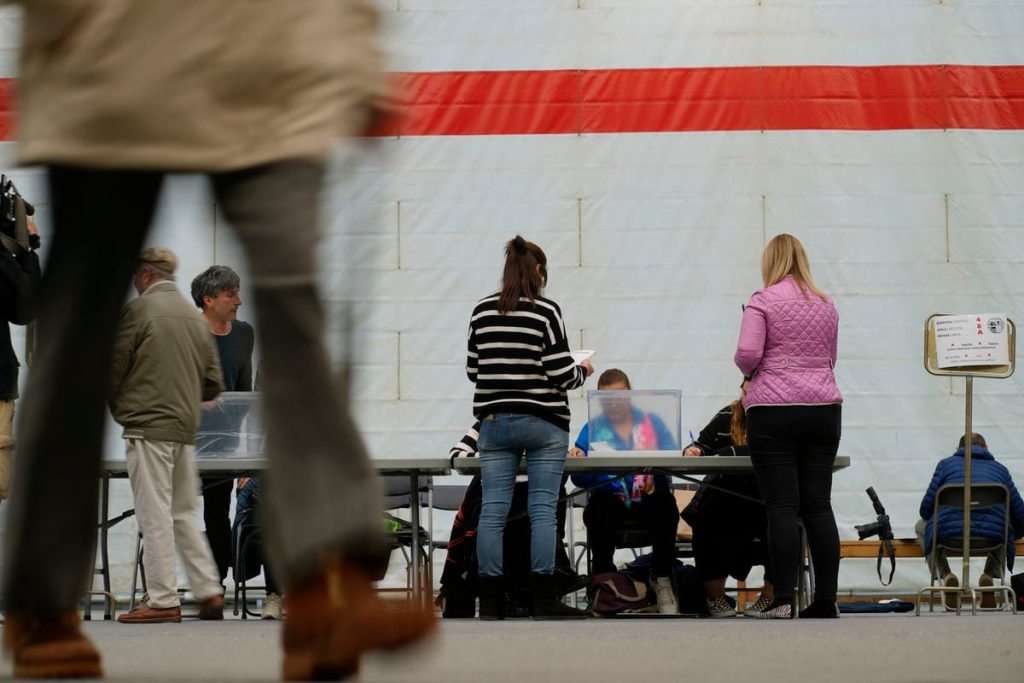On a Sunday morning in Vitoria, the capital of the Basque Country and the province of Alava, the city woke up quiet and almost deserted after a night of bustling bars. Eneko Besa, a 48-year-old high school teacher, was one of the few citizens out on the streets, making his way to the Iradier Arena event center to vote. Around 1.8 million citizens were called to vote on April 21st in the Basque Country, where the 2,695 polling stations were set up without issues and the first few hours of voting went smoothly. Many voters were focusing on social issues like healthcare and unemployment, with little mention of the sovereignty question.
In the outskirts of Vitoria, in the neighborhood of Salburua, Sonia Ramos, a 38-year-old administrative worker, arrived at the polling station with her husband and two young children to vote. The district, where EH Bildu has won in previous elections, is filled with young families living in modern apartment blocks. The EH Bildu candidate, Pello Otxandiano, visited the polling station along with other members of the party. Polls were indicating a close race between EH Bildu and the PNV, with the possibility of EH Bildu overtaking the PNV for the first time.
Back in the city center, near the Basque Parliament, the School of Arts and Crafts was serving as a polling station. By midday, 28% of voters had already cast their ballots. Among them was Kleper Carabali, a 63-year-old Ecuadorian immigrant who has been living in the Basque Country for 22 years. He voted for the PSOE because he believes it is a party that looks out for immigrants. Vitoria has been recognized as a green city and has won awards for its environmental initiatives from organizations affiliated with the UN.
Over 12,000 people were working to ensure the smooth running of the elections, including 8,000 members of polling stations, 1,450 public administration representatives, and 1,750 poll watchers. Aitor Jubera, an 18-year-old, arrived at the polling station on his bike with his friend Ander Ruiz, also 19. Jubera was one of the more than 75,600 young people who were voting for the first time. The number of mail-in votes for these Basque elections had decreased by 52% compared to the previous elections due to the impact of the pandemic.
In the bustling Plaza de España, families were busy with their Sunday tradition of buying and trading football trading cards. For many, the political campaign was overshadowed by the recent Copa del Rey final, which was won by Athletic Bilbao. However, the local team, Deportivo Alavés, was also in the spotlight, as they had a game that afternoon. Residents like Mikel Muñoz, a nurse, and his seven-year-old son Oinatz were enjoying the election day activities, including casting their votes and buying trading cards. The atmosphere was lively, with some residents expressing their dissatisfaction with the current government and their hopes for change through their vote.


